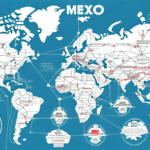Understanding Your Shipping Needs
Before selecting a delivery company, it's essential to thoroughly evaluate your shipping requirements. This ensures that the chosen provider aligns with your business objectives and customer expectations.
Types of Products Shipped
The nature of your products significantly influences the choice of a delivery company. For instance:
- Fragile Items: Require specialized packaging and handling to prevent damage.
- Perishable Goods: Need temperature-controlled shipping solutions to maintain quality.
- High-Value Products: Demand enhanced security measures and insurance coverage.
Understanding these requirements helps in selecting a provider that can adequately handle your specific product types.
Shipping Volumes and Frequency
Evaluate the volume and frequency of your shipments. Some companies offer discounts for bulk shipping or long-term contracts, which can lead to significant cost savings.
Special Shipping Requirements
If your business has unique shipping needs, such as hazardous material handling or oversized packages, ensure that the delivery company has the necessary capabilities and certifications to manage these requirements safely and legally.
Evaluating Shipping Costs and Value
Shipping costs are a critical factor in the decision-making process. However, it's important to assess not just the price but the overall value provided by the delivery company.
Comparing Prices
Obtain quotes from multiple delivery providers to compare their pricing structures. Consider factors like base rates, fuel surcharges, and any additional fees that might apply.
Additional Fees and Discounts
Be aware of potential extra charges, such as:
- Fuel Surcharges: These can fluctuate based on current fuel prices.
- Handling Fees: Applied for specific services or bulky items.
- Volume Discounts: Reduced rates for high-volume shippers.
Some companies may offer promotional discounts or loyalty programs that can provide further savings.
Cost vs. Delivery Speed
There's often a trade-off between shipping costs and delivery speed. Faster delivery options, such as same-day or next-day shipping, usually come at a higher price. Assess the importance of delivery speed for your business and customers to determine the best balance between cost and efficiency.
Delivery Timeframes and Speed
The delivery timeframe can significantly impact customer satisfaction and business operations.
Standard vs. Expedited Shipping
Most delivery companies offer a range of shipping options:
- Standard Shipping: Typically takes 3-7 business days.
- Expedited Shipping: Usually delivered within 1-3 business days.
- Overnight Shipping: Guarantees next-day delivery.
Select the option that best aligns with your business model and customer expectations.
Warehouse Proximity
The location of a delivery company's warehouses and distribution centers can affect delivery times. Companies with a widespread network can offer faster and more reliable shipping services.
For example, UPS and FedEx have extensive global networks that facilitate quick delivery across various regions.
Customer Service and Support
Excellent customer service is vital for resolving issues and maintaining a smooth shipping process.
Effective Communication
A reliable delivery company should offer multiple channels of communication, including phone support, email, and live chat, to address inquiries and issues promptly.
Issue Resolution
Investigate how the company handles lost or damaged packages. Look for providers with a reputation for efficiently managing and resolving such incidents.
Customer Service Features
Additional features like personalized account management and dedicated support teams can enhance your shipping experience.
International Shipping Considerations
If your business operates globally, international shipping capabilities are crucial.
Shipping Options
Choose a delivery company that offers multiple international shipping methods, such as air freight for speed or sea freight for cost-effectiveness. DHL is renowned for its international shipping expertise.
Customs and Regulations
Ensure the company has experience navigating customs procedures and can assist with necessary documentation to prevent delays.
Top International Shipping Companies
Leading providers like FedEx and UPS offer comprehensive international services, including tracking and customs clearance support.
Tracking and Technology Solutions
Advanced tracking and technology solutions can enhance the shipping experience for both businesses and customers.
Reliable Tracking Systems
Choose a delivery company that provides real-time tracking updates. This transparency allows you and your customers to monitor shipments at every stage.
Technological Features
Features like automated shipping labels, integration with e-commerce platforms, and mobile apps can streamline your shipping operations. FedEx and UPS offer robust technological solutions to enhance efficiency.
Automation and Efficiency
Automated processes reduce the likelihood of human error and speed up the shipping workflow, contributing to a more efficient business operation.
Sustainability and Environmental Impact
With increasing awareness of environmental issues, choosing a delivery company committed to sustainability is becoming more important.
Eco-Friendly Practices
Look for companies that utilize eco-friendly packaging materials, optimize delivery routes to reduce emissions, and invest in fuel-efficient or electric delivery vehicles.
Green Shipping Options
Some providers offer carbon-neutral shipping options, allowing businesses to offset their carbon footprint. For example, DHL has initiatives focused on sustainability and reducing environmental impact.
Conclusion: Making the Right Choice for Your Business
Selecting the appropriate delivery company involves a comprehensive evaluation of your shipping needs, budget, delivery speed, customer service, and other critical factors. By carefully considering these aspects and leveraging reliable data and reputable sources, you can make an informed decision that enhances your business operations and satisfies your customers.
For further insights and detailed comparisons of delivery providers, refer to authoritative resources such as UPS, FedEx, and DHL.








